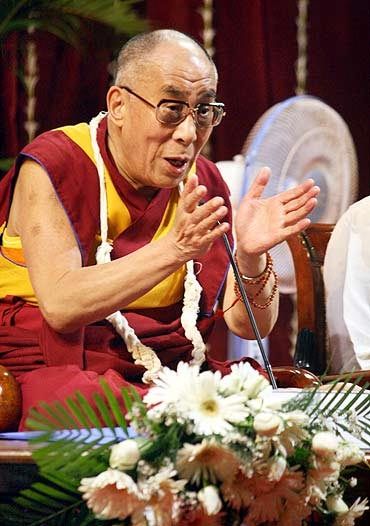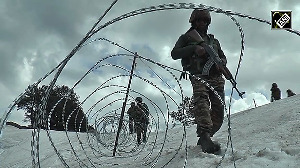 China said on Monday that the Dalai Lama’s Arunachal Pradesh visit had a “negative impact” on Sino-India ties and the vexed boundary issue, as it asserted that New Delhi should not use the Tibetan spiritual leader to “undermine” Beijing’s interests.
China said on Monday that the Dalai Lama’s Arunachal Pradesh visit had a “negative impact” on Sino-India ties and the vexed boundary issue, as it asserted that New Delhi should not use the Tibetan spiritual leader to “undermine” Beijing’s interests.
“In the past due to some reason that we all know the political foundation of China and India relations were undermined,” foreign ministry spokesman Lu Kang said referring to the Dalai Lama’s visit to Arunachal Pradesh which Beijing claims as part of “Southern Tibet”.
This had a “negative impact for the bilateral relations and also the boundary question negotiations,” he said reacting to a question on India’s clarification over the 81-year-old Tibetan spiritual leader’s visit to the state.
India’s ministry of external affairs has said there was no change in New Delhi’s position on Tibet being part of China and it will continue to seek a fair, reasonable and mutually acceptable solution to the boundary issue.
-- An epic journey: The day the Dalai Lama came to India
“We urge the Indian side to observe its commitment on Tibet-related issues and implement our consensus namely they should not use Dalai Lama to undermine the interests of China,” Lu said.
“Only in this way can we create a good atmosphere to the settlement of the boundary question,” he said.
China has lodged a diplomatic protest with India when the Dalai Lama began his visit to Arunachal on April 4. He also visited the Tawang region close to the Line of Actual Control, from where he entered India in 1959.
The China’s foreign ministry criticised the visit, saying it will impact the boundary talks between the two countries, while the official Chinese media carried a number of articles against India, some even calling on Beijing to answer “blows with blows”.
China also took exception to Minister of State for Home Affairs Kiren Rijiju accompanying the Dalai Lama and his assertion that Arunachal Pradesh was “an inseparable part of India”.
The Dalai Lama’s visit has largely been projected by the state media as India using the him as a “diplomatic tool” against China after Beijing blocked India’s membership of the Nuclear Suppliers Group and the UN ban on Jaish-e-Mohammad leader Masood Azhar.
Tawang, in northern Arunachal Pradesh, is believed to be the birthplace of the sixth Dalai Lama in 1683 and is at the centre of the Tibetan Buddhism, which makes China wary of the influence the 14th Dalai Lama may have on Tibetans.
China considers the Dalai Lama as a “dangerous separatist”.











 © 2025
© 2025